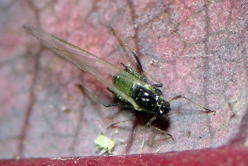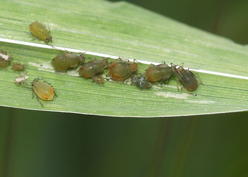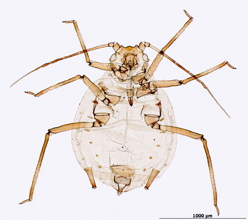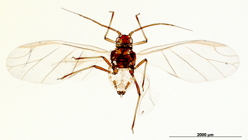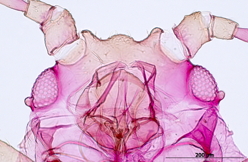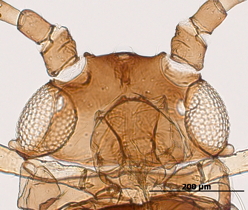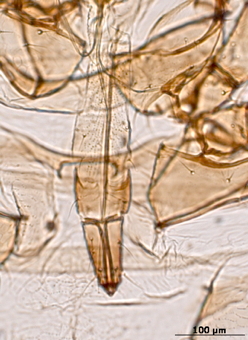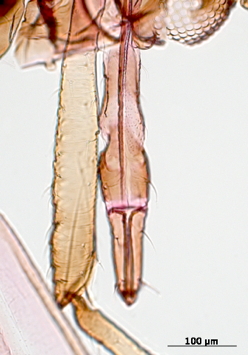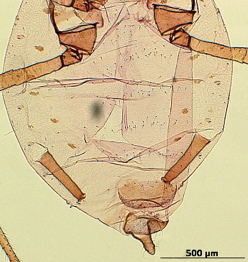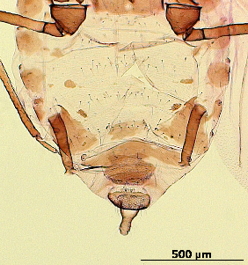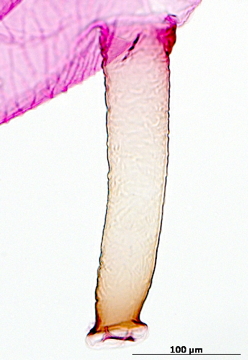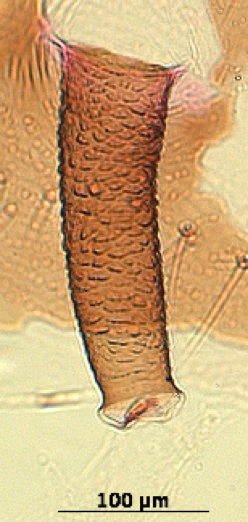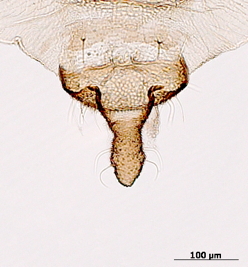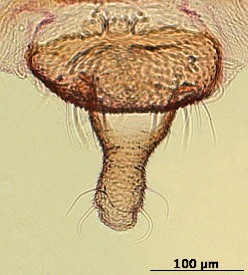Rhopalosiphum padi
is nearly cosmopolitan in distribution and prefers grasses, cereals, and sedges.
Common names. Bird cherry-oat aphid.
Distribution. This aphid is globally distributed, located in all but the coldest terrestrial habitats.
Host associations. It has a broad host range, having been recorded from species of over 20 plant families.
Economic importance. It is particularly important on grasses, cereals, and rosaceous plant species, but also attacks a broad range of other plants including aquatic and semiaquatic species. It has been implicated in the transmission of at least 15 plant viruses.
See also. Taxonomy at Aphid Species File. Aphids on the World's Plants. Literature references.
